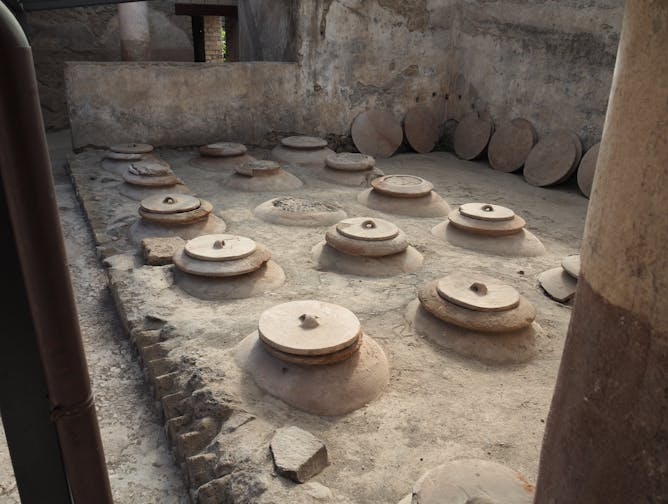|
The idea that history only moves in the single, unassailable direction of progress stems from what is known in the UK as the Whig school of thought. If recent world events are anything to go by, however, you’re unlikely to embrace that interpretation in geopolitics. But what about a Whig take on, say, wine?
When it comes to imagining Romans wining and dining, we more often than not imagine their habits to be rather rudimentary. Indeed, it has long been alleged that Romans concealed their wine’s flaws by adding spices, herbs, and other ingredients to the freshly pressed grape juice. But a new study on the earthenware vessels used for fermentation – known as “dolia” – has challenged traditional views on the taste and quality of Roman wines, some of which may even have
rivaled today’s grands crus. Fascinatingly, Dmitri van Limbergen and Paulina Komar reveal similarities between wines from the Roman empire and Georgia, one of the cradles of ancient winemaking.
The list of benefits that those with good looks enjoy is a long one: higher salaries, perceived superior intelligence and leadership qualities. And it has just gotten longer. According to new research, beautiful people are more likely to be trusted than the rest of us common mortals – regardless of their merits.
Yet on another scientific note, if you’re a woman suffering from severe mood swings before your period, you’re more likely to be hit by depressive symptoms during or after pregnancy. The good news is: understanding and treating one disorder could help with managing the other.
|

Dimitri Van Limbergen, Ghent University
Roman wines may have looked and tasted better than long assumed. The answer lies in their use of clay jars, a technique still used in modern winemaking in Georgia.
|

Astrid Hopfensitz, EM Lyon Business School
When presented with ID photos, those rated as more attractive were also deemed to be more trustworthy. Benefitting from good looks oneself doesn’t protect against being fooled.
|

Donghao Lu, Karolinska Institutet
This link suggests that understanding and treating one condition could help with managing the other.
|
|
|

Simon Chadwick, SKEMA Business School; Paul Widdop, Manchester Metropolitan University
Paris will be at the centre of the global sporting stage this summer.
| |

Sergey Katsuba, University College Dublin
Thirty years after homosexuality was decriminalised in Russia, new laws making ‘gay propaganda’ an offence are criminalising being gay.
|

Andrés Porras Chaves, IE University
Songwriting, theatre, rap and graphic novels have won literary awards, but video games remain an overlooked part of the wider literary canon.
| |

Olga Kokshagina, EDHEC Business School; Sabrina Schneider, MCI Management Center Innsbruck
The appetite for remote working is not going anywhere. Faced with this phenomenon, managers can either double down on the old 9-to-5 model or offer ever tailored work choices to their employees.
|
|
|